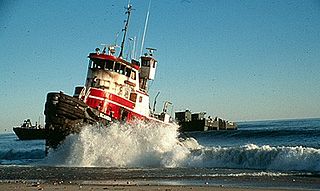 W
WR v Badger, [1996] 1 S.C.R. 771 is a leading Supreme Court of Canada decision on the scope of aboriginal treaty rights. The Court set out a number of principles regarding the interpretation of treaties between the Crown and aboriginal peoples in Canada.
 W
WEverybody Loves a Good Drought is a book, by P. Sainath, about his research findings of poverty in the rural districts of India. The book won him the Ramon Magsaysay Award.
 W
WThe Food Quality Protection Act (FQPA), or H.R.1627, was passed unanimously by Congress in 1996 and was signed into law by President Bill Clinton on August 3, 1996. The FQPA standardized the way the Environmental Protection Agency (EPA) would manage the use of pesticides and amended the Federal Insecticide, Fungicide, and Rodenticide Act and the Federal Food Drug and Cosmetic Act. It mandated a health-based standard for pesticides used in foods, provided special protections for babies and infants, streamlined the approval of safe pesticides, established incentives for the creation of safer pesticides, and required that pesticide registrations remain current.
 W
WThe Hazardous Substances and New Organisms Act (HSNO) is an Act of Parliament passed in New Zealand in 1996. The New Zealand Environmental Protection Authority (EPA) administers the Act.
 W
WFrom 1952 to 1966, Pacific Gas and Electric Company (PG&E) dumped about 370 million gallons of chromium-tainted wastewater into unlined wastewater spreading ponds around the town of Hinkley, California, located in the Mojave Desert about 120 miles north-northeast of Los Angeles.
 W
WThe Julie N. is a Liberian tanker that was involved in an oil spill occurring on the Fore River on 27 September 1996 in Portland, Maine. The 560 foot (170 m) ship was carrying over 200,000 barrels (32,000 m3) of heating oil and was headed towards a docking station in South Portland to unload its contents.
 W
WIn the United States, the Mercury-Containing and Rechargeable Battery Management Act was signed into law on May 13, 1996. The purpose of the law was to phase out the use of mercury in batteries and to provide for the efficient and cost-effective collection and recycling, or proper disposal, of used nickel cadmium batteries, small sealed lead-acid batteries, and certain other batteries.
 W
WThe Nairobi Convention is a partnership between governments, civil society and the private sector, working towards a prosperous Western Indian Ocean Region with healthy rivers, coasts and oceans. It pursues this vision by providing a mechanism for regional cooperation, coordination and collaborative actions; it enables the Contracting Parties to harness resources and expertise from a wide range of stakeholders and interest groups; and in this way it helps solve inter-linked problems of the region's coastal and marine environment.
 W
WThe National Invasive Species Act (NISA) is a United States federal law intended to prevent invasive species from entering inland waters through ballast water carried by ships. NISA reauthorized and amended a previous measure, the Non-indigenous Aquatic Nuisance Prevention and Control Act of 1990 (NANPCA).
 W
WThe North Cape oil spill took place on January 19, 1996, when the tank barge North Cape and the tug Scandia grounded on Moonstone Beach in South Kingstown, Rhode Island, after the tug caught fire in its engine room during a winter storm. An estimated 828,000 US gallons (3,130 m3) of home heating oil was spilled. Oil spread throughout a large area of Block Island Sound, including Trustom Pond National Wildlife Refuge, resulting in the closure of a 250-square-mile (650 km2) area of the sound for fishing.
 W
WNorth Shore City Council v Auckland Regional Council was a case in the Environment Court of New Zealand concerning the proper interpretation of section five of the Resource Management Act 1991 by planning bodies.
 W
WThe Sea Empress oil spill occurred at the entrance to the Milford Haven Waterway in Pembrokeshire, Wales on 15 February 1996. The Sea Empress was en route to the Texaco oil refinery near Pembroke when she became grounded on mid-channel rocks at St. Ann's Head. Over the course of a week, she spilt 72,000 tons of crude oil into the sea. The spill occurred within the Pembrokeshire Coast National Park – one of Europe's most important and sensitive wildlife and marine conservation areas. It was Britain's third largest oil spillage and the twelfth largest in the world at the time.
 W
WThe Sustainable Fisheries Act of 1996 is an amendment to the Magnuson-Stevens Fishery Conservation and Management Act, a law governing the management of marine fisheries in the United States. Another major amendment to this legislation was later made under the Magnuson-Stevens Fishery Conservation and Management Reauthorization Act of 2006. The SFA was enacted to amend the outdated MSFCMA of 1976. The amendment included changes to the purpose of the act, definitions, and international affairs, as well as many small changes.
 W
WThe Ultimate Resource is a 1981 book written by Julian Lincoln Simon challenging the notion that humanity was running out of natural resources. It was revised in 1996 as The Ultimate Resource 2.
 W
WR v Van der Peet, [1996] 2 S.C.R. 507 is a leading case on Aboriginal rights under section 35 of the Constitution Act, 1982. The Supreme Court held that Aboriginal fishing rights did not extend to commercial selling of fish. From this case came the Van der Peet test for determining if an Aboriginal right exists. This is the first of three cases known as the Van der Peet trilogy which included R v NTC Smokehouse Ltd and R v Gladstone.